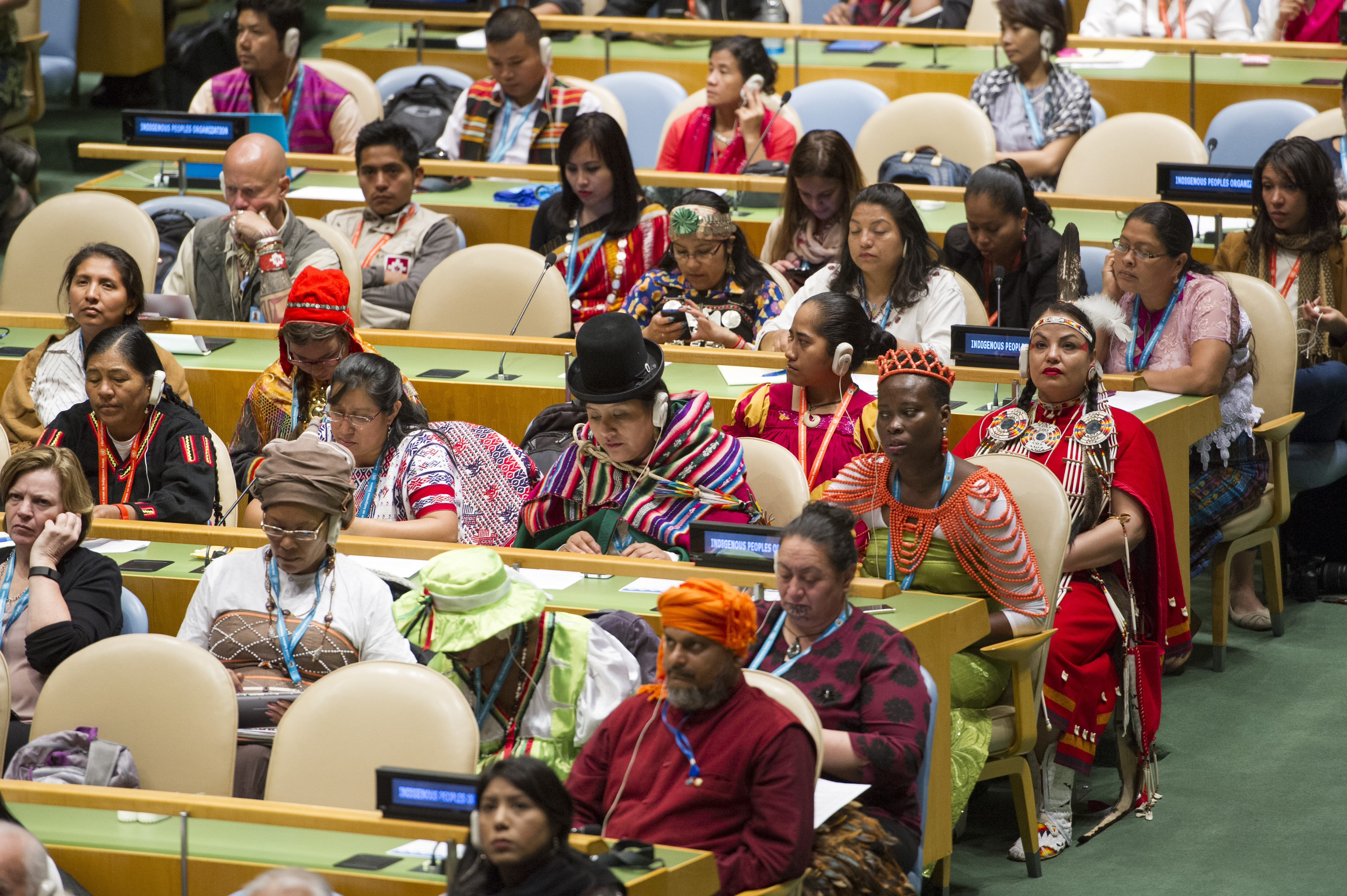
Implementing the United Nations Declaration on the Rights of Indigenous People (UNDRIP) was a challenge that civil society groups sought to immediately resolve after the adoption of the Declaration by the General Assembly in 2007. Indigenous groups wanted to ensure that Member States were actually making a difference for indigenous people on the ground and to develop a framework consistent with UN human rights frameworks while, at the same time, allowing for indigenous peoples empowerment.
The Indigenous Navigator is a project that provides tools for indigenous peoples to monitor and evaluate the recognition and implementation UNDRIP by Member States. By documenting violations and scheduled implementation of UNDRIP, the Indigenous Navigator relies on data collected from indigenous communities to hold States accountable. The project uses structural, process and outcome indicators to determine the well-being of indigenous communities through national and community-level questionnaires designed for indigenous people.
The Indigenous Navigator was presented at a side event of the 15th UN Permanent Forum on Indigenous Issues (UNPFII) at UN Headquarters in New York City on 12 May, 2016. The event was sponsored by the International Labour Organization (ILO) and involved presentations from a panel of representatives from civil society organizations involved in the design and delivery of the data project.
Civil society representatives highlighted the unique challenges and outcomes of the Indigenous Navigator for indigenous communities worldwide. The data collected from the project can be analyzed online and includes scores of indigenous rights indicators at national and sub-national levels. With wider use of the Indigenous Navigator, it is hoped that civil society groups can better equip themselves to holding local and national authorities accountable for implementation of the UNDRIP.
The Indigenous Navigator is a collaborative initiative of the ILO, Asia Indigenous Peoples Pact (AIPP), the Forest Peoples Programme (FPP), International Work Group on Indigenous Affairs and the Tebtebba Foundation. The project is also supported by the European Instrument for Democracy and Human Rights.
To learn more about the 15th Session of the UN Permanent Forum on Indigenous Issues, please click here.
To learn more about our work on Indigenous Peoples, please visit: www.un.org/indigenous
Source & Copyright: UNDESA
 Welcome to the United Nations
Welcome to the United Nations